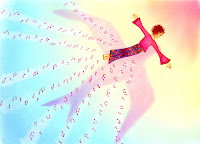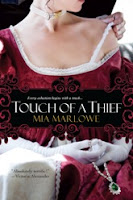Quietly and discreetly, Dar piled sleeping bags, food, first aid kit, and other items on the table. He packed up our cooler, filled water bottles, and added little touches like salt, spices, chocolate, fruit, and pillows. In the morning I woke up, and we were ready to go, no matter how much I was grumpy or obnoxiously unwilling to help. And so, having no excuse to stay, we went.
I was gloomy all the way to the south entrance to Henry Coe State Park. I felt fragile and disconnected, and my worries weighed on me. At Dowdy Ranch, we decided to build our tent down there rather than go all the way up to Orestimba Corral where most people camp. We chose a site with a lovely view close to picnic tables, put up the tent, and then left for a hike to Burra Burra Peak, where I had long wanted to go.
 |
| Tie Down Peak |
 |
| Shooting Stars |
I wish I could live on those hills, my legs pumping in a never-ending walk, connected to the soil, to nature, to the soaring vultures, the warbling wild turkeys, the scrambling lizards, the little frightened cottontail who we surprised around the bend, and the graceful deer as they raise their doe-eyes to stare at us, frozen in the hope that we won’t notice them unless they move. Thank the fairies for Dar and his quiet persistence in doing what he knew was most right. In packing us up. In taking us out. In giving me the opportunity to return to the real me.
My heart lives within these hills, down in the valleys and up on the ridges. My home is the trail, sleeping on the warm ground, waking up as the first rays of the sun mingle with the song of birds. That’s where I belong.
 |
| Bottom pool of Pacheco Falls |









